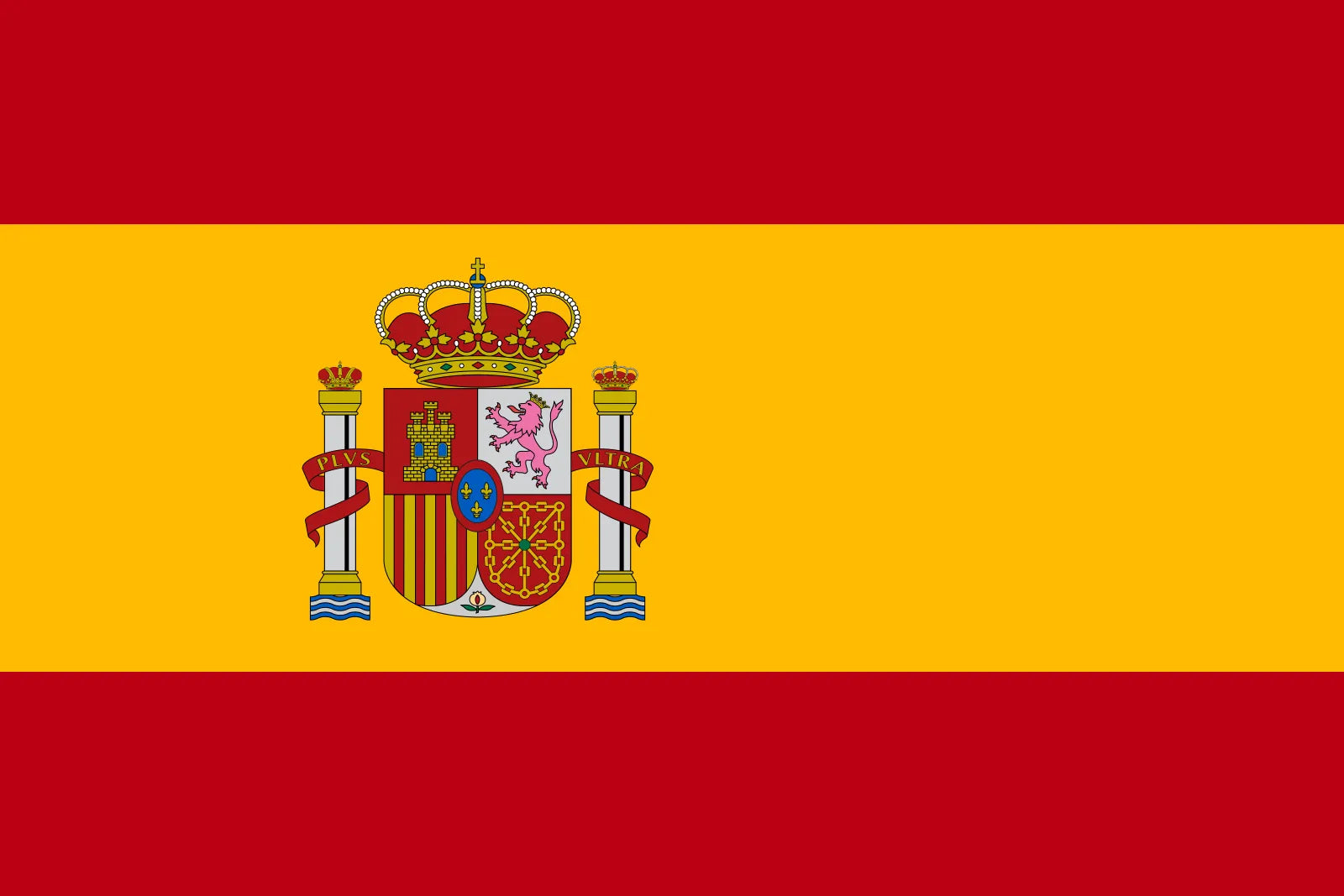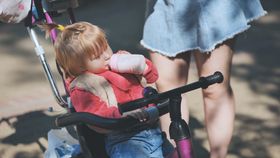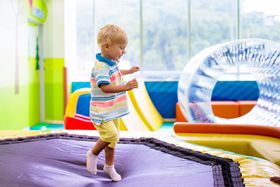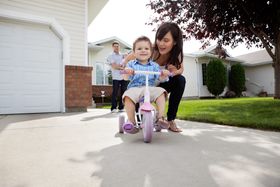3 Psychosocial Stages of Kids Aged 0-5 Years & How to Support Each
The psychosocial stages that children go through from 0-5 years can be divided into three stages: trust vs mistrust, autonomy vs shame and doubt, and initiative vs guilt.
Updated April 14, 2023
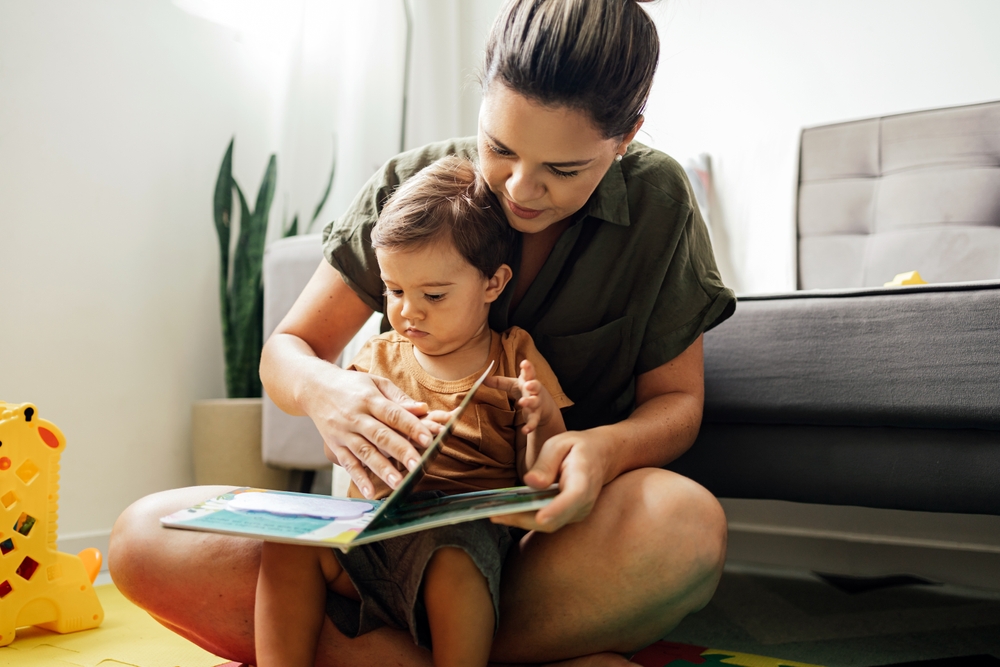
Psychosocial development is the process of a child acquiring a sense of self and developing relationships, motor and verbal skills, and independence. Erik Erikson's popular theory of psychosocial stages of development consists of three stages: Trust vs Mistrust (0-1.5 yrs), Autonomy vs Shame & Doubt (1.5-3 yrs), and Initiative vs Guilt (3-5 yrs). Each stage is critical in a child's development, and as a parent or caregiver, it's important to know how to support them.
Here is a closer look at each of these stages for children between the ages of 0 and 5.
- Stage 1: Trust vs. Mistrust
- Stage 2: Autonomy vs. Shame and Doubt
- Stage 3: Initiative vs. Guilt
Stage 1: Trust vs. Mistrust (Birth - 18 months)
Psychosocial development in infancy is key, as this is when infants develop a sense of trust or mistrust of the world around them. This is achieved by building a secure attachment to their primary caregiver. To help your child develop trust, it's important to be consistent and responsive to their needs. This means responding to their cries, providing physical affection and attention, and creating a safe environment.
Encourage your child's communication and exploration of their environment, providing them with a variety of experiences, love, and attention. This helps them learn that their efforts are valued and that the world is a safe place to explore.
Mistrust is healthy in moderation and prepares us as adults to be cautious. However, not mastering this stage can result in long-term consequences, such as being socially disengaged, depressed, suspicious of others, lonely, and/or anxious. Thus, it's crucial to support, guide, and love your child during this stage of development.
As your baby approaches 6-9 months, they become more interested in their surroundings and begin to explore their environment with curiosity. To encourage this development, you can have your baby face forward in a stroller. The SmarTrike x Kelly Anna STR7 Stroller Trike is an excellent option for this. Designed for babies from 6 months old, it provides visual stimulation to boost their learning and focus. The unique design allows the baby to move the handlebar without steering, giving the parents full control. This is great for gradually introducing them to the concept of steering and controlling the trike.
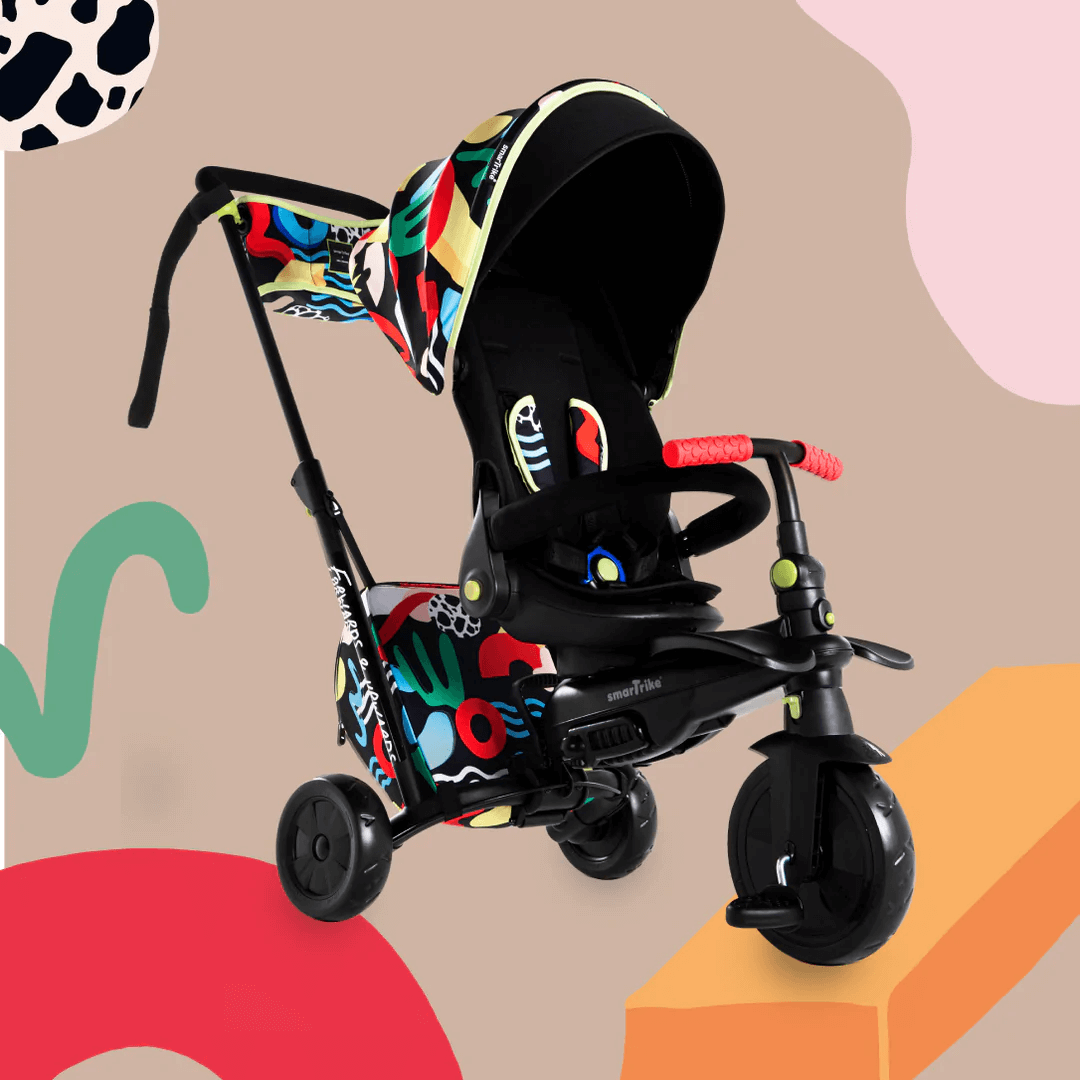

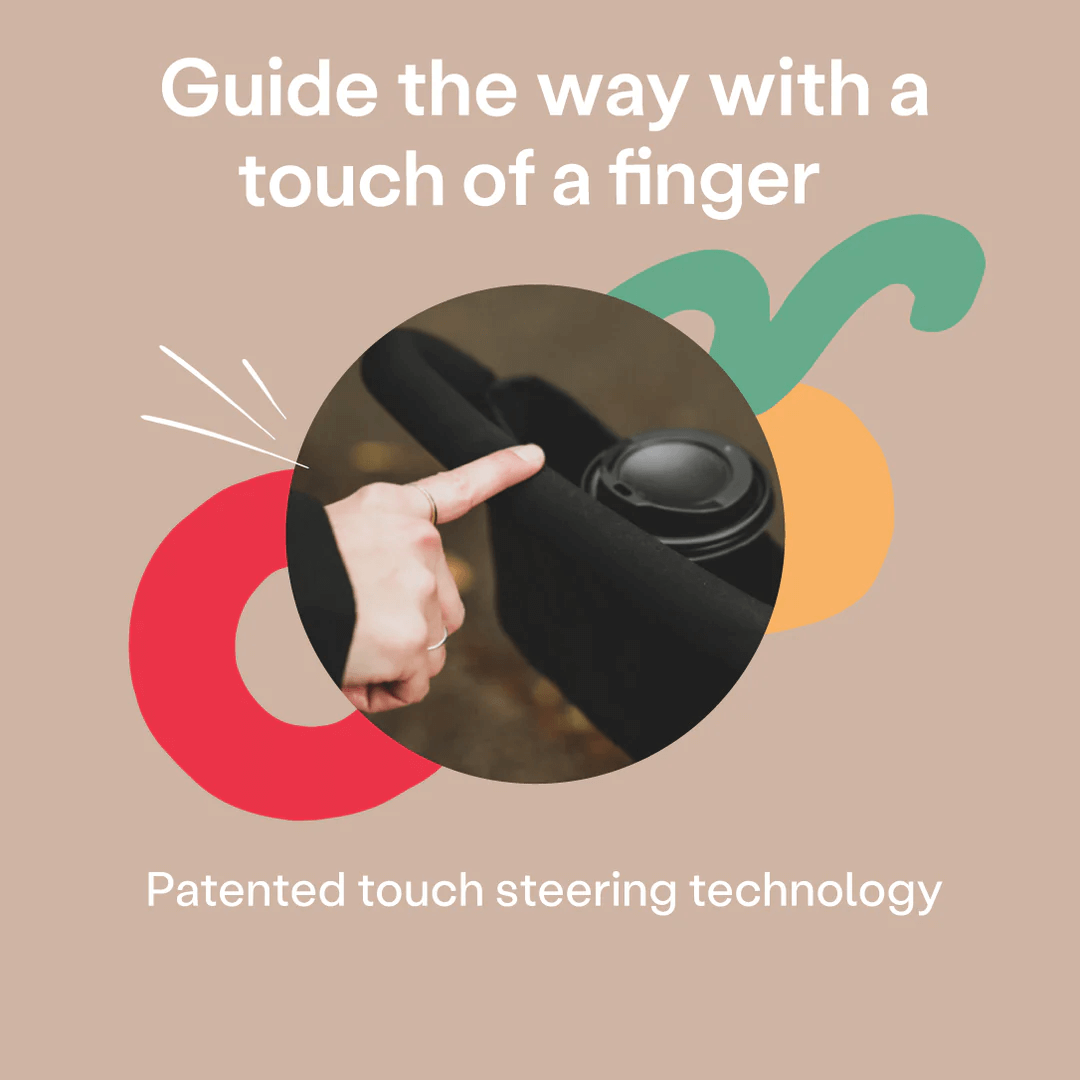
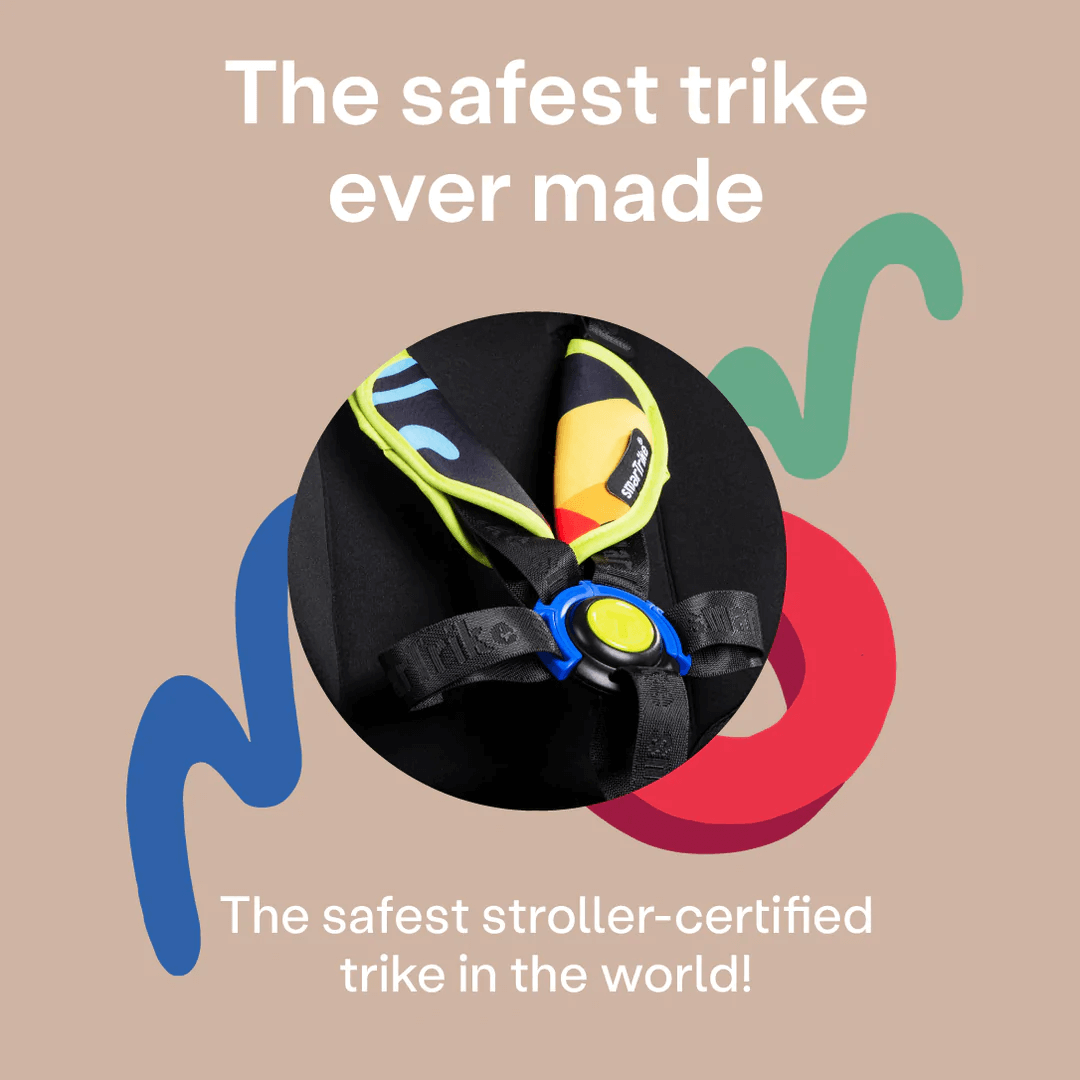
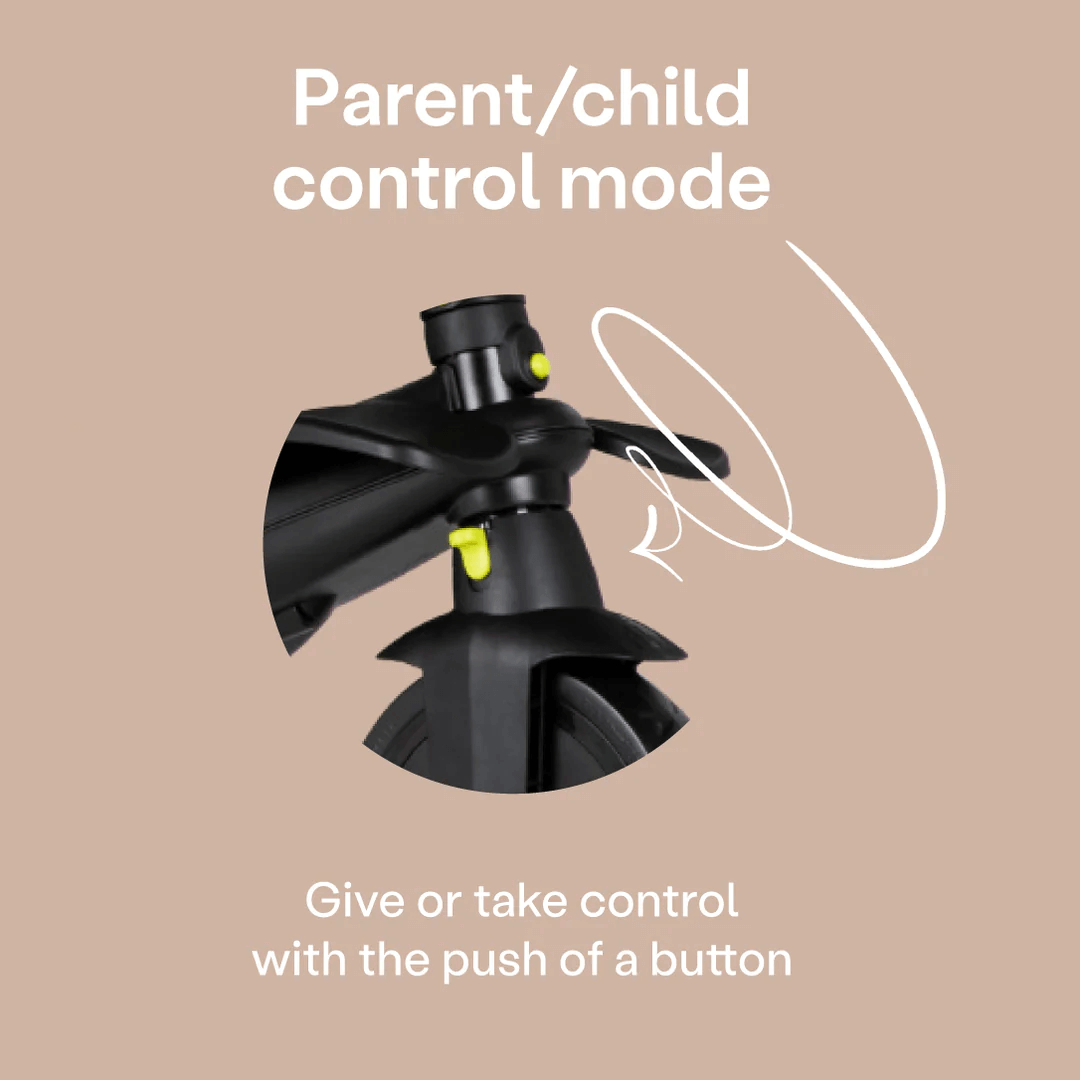
How You Can Help
During the first year of your baby's life, building trust is crucial for their psychosocial development. You can help by paying close attention to their needs, establishing routines, and offering reassurance when they are scared. By doing so, you help your baby feel secure and create a strong foundation of trust.
Stage 2: Autonomy vs. Shame and Doubt (18 Months - 3 Years)
Children aged 18 months to 3 years express a greater need for independence and control over themselves and the world around them. This is the second stage of psychosocial development, called Autonomy vs. Shame and Doubt. During this stage, children learn to manage their body systems and care for their own needs, progressing toward becoming independent thinkers.
When mastering this stage, children develop autonomy, which is an important part of their development. It allows children to:
- Exercise their critical thinking skills
- Make decisions independently
- Gain a greater sense of their identity
- Process their emotions
- Learn from their mistakes
Not mastering this stage can lead to long-term consequences such as low self-esteem, greater nervousness regarding performance, and defensive behavior.
The STR3 Folding Pushchair Trike is an ideal option for supporting babies from 10 months old to early toddlerhood in developing their autonomy. It is safe and promotes the baby’s motor, physical, and cognitive development. The pushchair trike allows children to keep their feet on the pedals and move the handlebar without actually steering or controlling the wheels, which encourages them to be more confident. It is also ideal for when your child knows how to pedal, as it can be put in child steering mode to encourage independence.
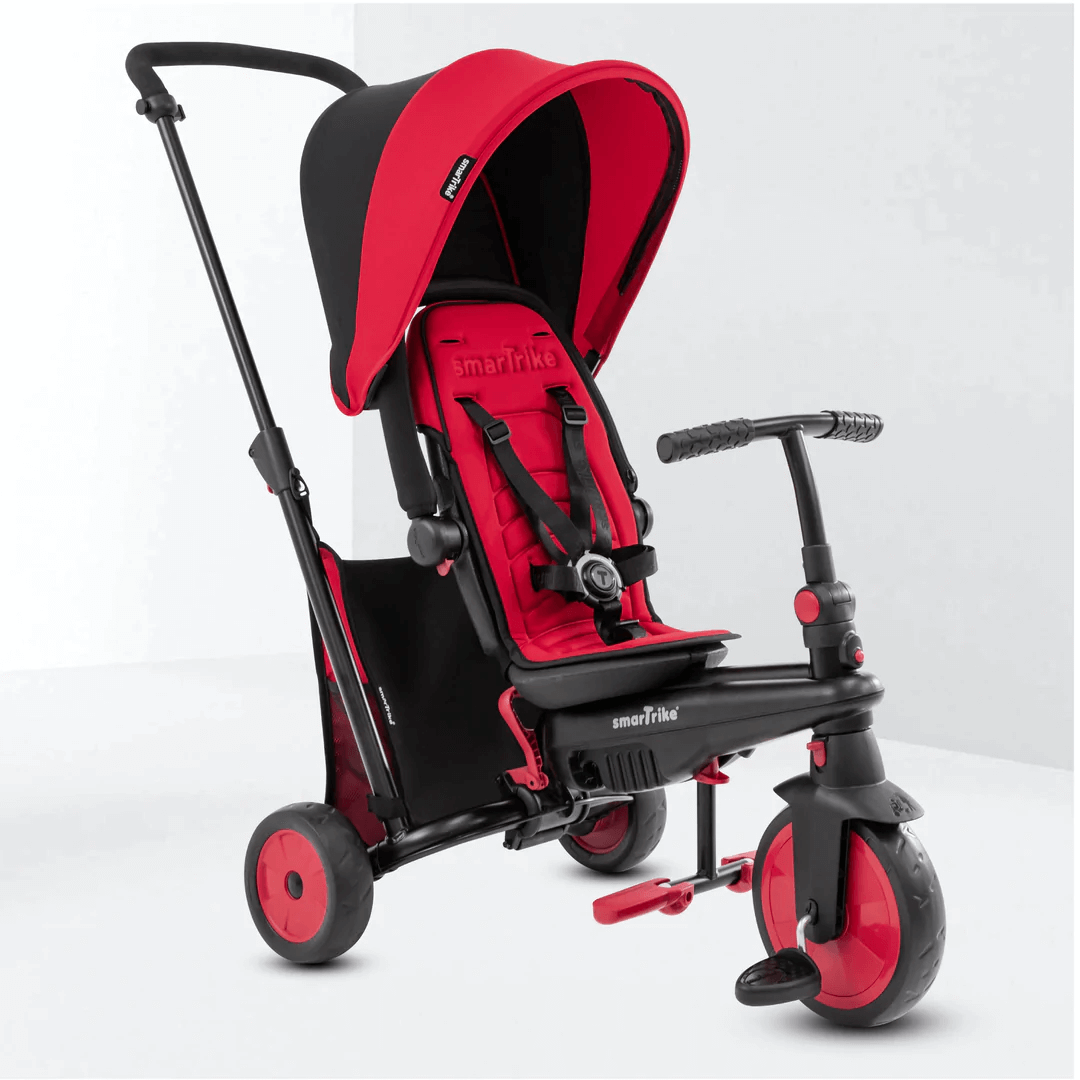


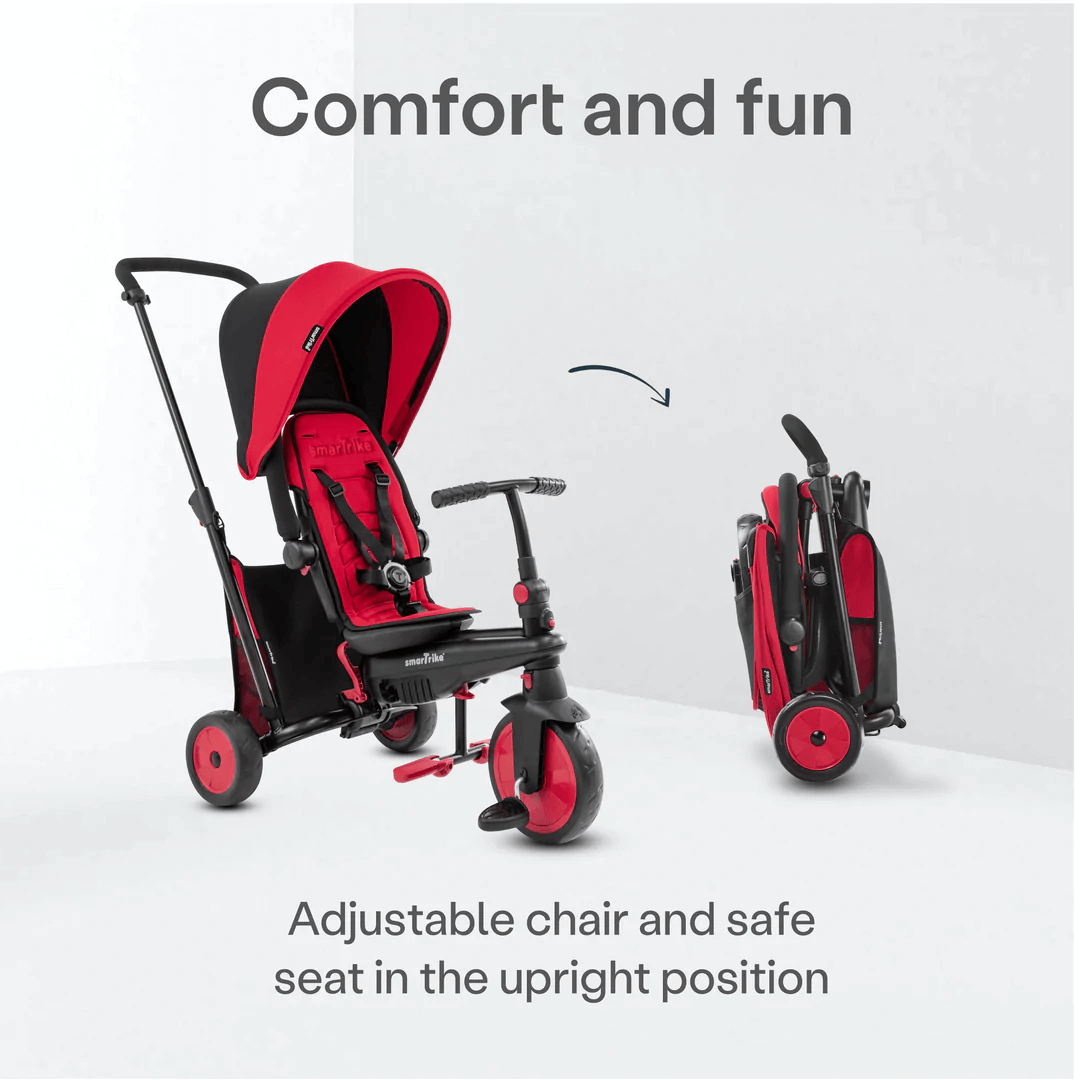

How You Can Help
Helping a child develop autonomy bolsters their self-confidence and decision-making skills. Offering choices, such as selecting their own clothing and snacks, allows children to express their opinions and preferences. This helps to foster independence and instills the ability to make better decisions in the future.
Stage 3: Initiative vs. Guilt (3-5 Years)
Giving children the opportunity to make choices while setting safe boundaries can empower them to develop self-confidence and independence. During the Initiative vs. Guilt stage (3-5 years), children experience the desire to attempt new tasks, join activities with friends, or use new skills in play. However, guilt may arise when they fail to complete a task, use skills incorrectly, or do not meet expectations. It is crucial to strike a balance between initiative and guilt to help children take responsibility for their actions and learn from their mistakes. When parents encourage and guide their children, they can develop ambition and direction, distinguish between what they can and cannot control, and avoid becoming fearful of trying new things.
How You Can Help
It is essential that parents provide their children with the necessary guidance and support to learn self-control and recognize safe boundaries. They should also encourage their children to take initiative and responsibility for their own actions and mistakes. With a healthy balance of initiative and guilt, children can develop the self-confidence and ambition to take risks and pursue their dreams.
Be Your Child's Champion
As a parent, you hold the key to your child's development. By understanding their psychosocial stages and providing the right guidance and support, you can give them the tools they need to succeed. Remember that you are their champion, and with love and positive reinforcement, you can help shape their future in a positive way. Embrace the journey of parenting and enjoy watching your child grow and develop into the best version of themselves.



